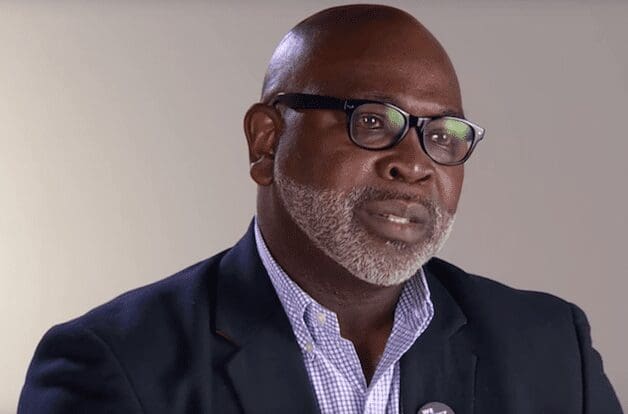Dr. Willie Parker is a confessing born-again Christian and a “reproductive justice advocate.” Translated: Dr. Parker is a Christian doctor who not only performs abortions but also advocates for the morality of the pro-choice movement.
Dr. Parker is very vocal about his position, and his recently released book, Life’s Work: A Moral Argument for Choice, explains why he feels performing abortions on women is, in fact, helping them. Dr. Parker is a 54-year-old, African-American Christian, who splits his time between Georgia, Mississippi and Alabama performing abortions.
On Wednesday, April 5, 2017, just a day after his book released, Dr. Parker addressed a crowd at Strand Book Store in New York City. Dr. Parker explained how his experiences of race and class discrimination have informed his current view of abortion. He compared restrictions on abortion to slavery—drawing the similarity between one person (or group of people) claiming to know what’s best for another when in reality the motivation is to control that other person (or group of people). “If you’ve never lived with your back against the wall,” Dr. Parker said, “you won’t get why a woman would go to any length to end a pregnancy they do not want.”
Dr. Parker grew up in a Christian home in Birmingham, Alabama, the fourth of six kids born to his single mother. Joining a fundamentalist Baptist church at the age of 15, Dr. Parker canvassed streets preaching the good news of salvation and even preached in church. He is no stranger to the church or the pro-life views held by fundamentalists. Later, he would begin to question the reasoning behind why women (whether they were teenagers or just single adults) alone bore the shame and responsibility for heart-wrenching decisions while the men responsible sat silently, seemingly unfazed.
Years into his career in obstetrics, Dr. Parker refused (on religious grounds) to perform abortions, choosing to refer women to other doctors to perform that operation. However, a recording of Martin Luther King Jr.’s final sermon, “I’ve Been to the Mountaintop,” is what he feels eventually changed his mind. Dr. King used the story of the Good Samaritan in this sermon, and Dr. Parker could not shake the feeling that he had a lot in common with the priest and the Levite who passed the traveler by who desperately needed help. Dr. Parker says he realized his refusal to help women in need by performing abortions on them was motivated by a desire to save face with his religious peers. Thinking of the cases of incest and rape which resulted in unwanted pregnancies, Dr. Parker felt he had seen the traveler in need of help in the faces of countless women, and, instead of helping, he had passed their need on to someone else.
Dr. Parker started performing abortions in 2002. He doesn’t like the terms pro-life and pro-choice, citing the fact that he feels he is pro-life when it comes to the woman in question. He prefers, instead, the terms pro-abortion and anti-abortion.
In his book, he talks about reconciling his Christian faith with performing abortions. Citing things like the sexism he feels exists in the Old Testament and the dangerous alternative to legal abortion, Dr. Parker no longer feels conflicted about following Jesus and performing abortions. A Newsweek article points out that some critics claim he isn’t a Christian, to which Dr. Parker says if being a Christian means being “obligated to be homophobic, to be anti-immigrant, to be anti-non-Christian, to be anti-woman, then I’m not.”
No matter where you land on abortion, you can’t fault Dr. Parker for understanding the plight women face with unintended pregnancies. In an opinion piece published by the New York Times, Dr. Parker writes, “I want for women what I want for myself: a life of dignity, health, self-determination, and the opportunity to excel and contribute. We know that when women have access to abortion, contraception and medically accurate sex education, they thrive.”
In his book, Dr. Parker writes, “If God is in everything, and everyone, then God is as much in the woman making a decision to terminate a pregnancy as in her Bible.”
Others cannot wrap their minds around the logic Dr. Parker outlines in his book. Russell Moore wrote an article in response to the book, saying that Dr. Parker’s thinking is the result of “cultural Christianity in which the self can refine anything: Jesus, the gospel, morality, justice, even life itself.” Indeed, Dr. Parker admits he does not believe a fetus is a person with autonomy, even though he draws the line at personally performing an abortion on a pregnant woman after 25 weeks.
Moore argues it is quite strange that someone advocating for the morality of abortion adheres to the same label as those who condemned the practice from the very beginning of Christianity’s existence in the midst of the Roman Empire.

